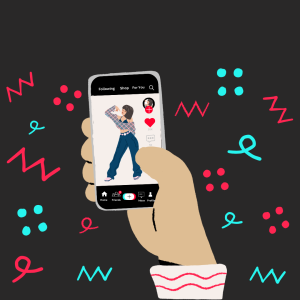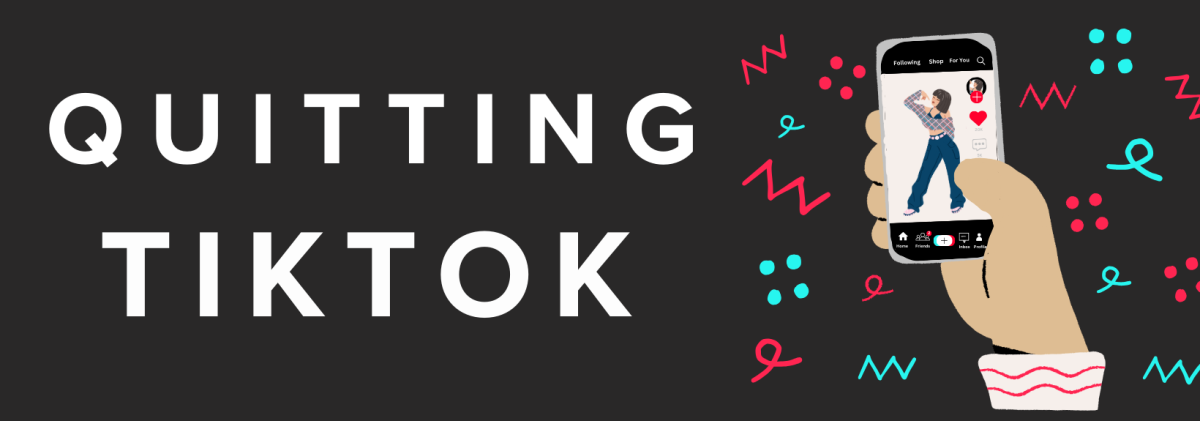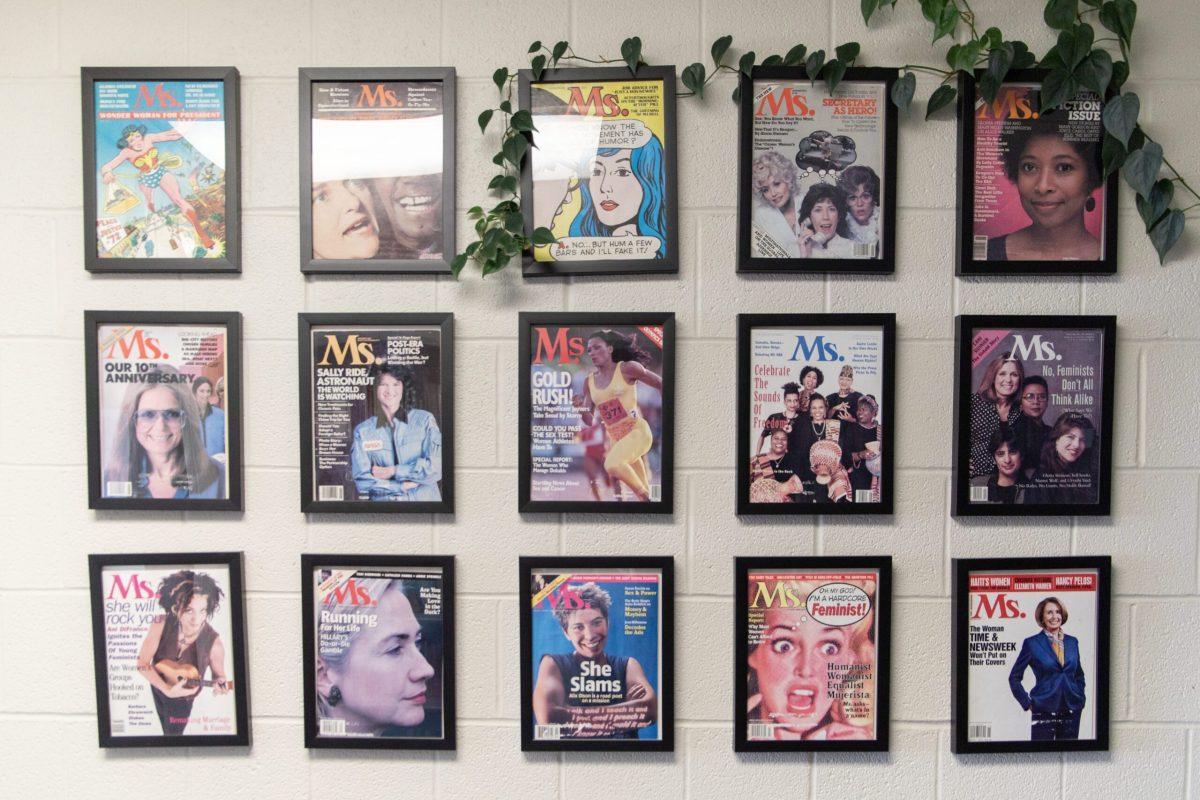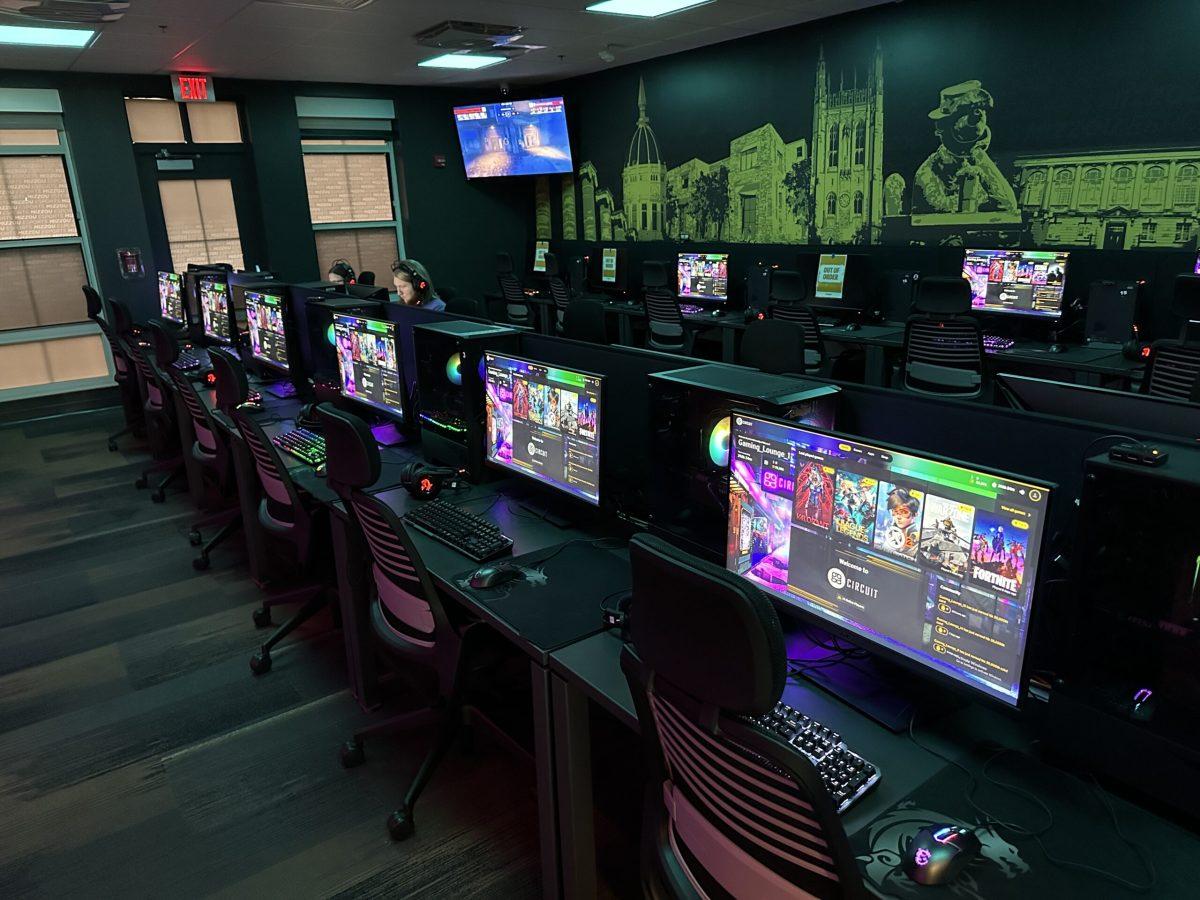TikTok is harming college students’ overall quality of life. I decided to delete it for a month to see how it would affect mine.
Like many other college students, I can (un)proudly say I am addicted to TikTok. That’s not an exaggeration — I spend approximately six hours on the app over the course of a week, according to my Settings app.
I grew up watching YouTube and spent most of middle school glued to Instagram. But throughout all that, I was still able to separate myself from the apps when it came to real life. What is so different about TikTok?
TikTok’s app layout allows users to take in hundreds of videos within a matter of minutes. After every video, users are left enticed to see what’s next. The app has tried to combat this binge-scrolling by putting in ads to encourage breaks, but if I’m being completely honest, I scroll past before they get to the word “break.”
It’s not just me who spends too much time on TikTok; the average TikTok user spends 95 minutes a day on the app. Other social media apps, like the ones previously mentioned, have adopted the short-form video format that makes TikTok so addicting. With the rise of Instagram Reels, Youtube Shorts and Snapchat’s Spotlight, users have become accustomed to this style of content.

TikTok took the world by storm in 2018 when ByteDance bought its predecessor, Musical.ly, and merged it with their app, Douyin. With about 150 million users in the U.S., and 1 billion users globally as of 2021, TikTok has become a necessity for those who don’t want to live under a rock.
TikTok is almost constantly in the news nowadays, with concerns over the app’s security following accusations of ByteDance mining and storing data from users. India banned the app in 2020, and since then multiple countries and states have been fighting to outlaw it as well. Some states, such as Utah and Indiana, have sued TikTok for its negative effect on children, as well as security issues. In March, Missouri Sen. Josh Hawley unsuccessfully tried to push a vote on legislation that would ban TikTok in the U.S. Hawley called the app “digital fentanyl.”
Reading these headlines, I began to wonder what my life would be like without the app that steals six hours away from my week. Today, TikTok is almost an alternative way of living; it connects people all over the world and offers content of many kinds to users. Its benefits can often overshadow its repercussions, like its effect on attention spans and the app’s lack of attention to potentially dangerous content. As an experiment, I decided to delete TikTok for a month to see if I noticed any differences in my quality of life.
I had grand plans for my time away from the mind-consuming app; reading more books, focusing on my schoolwork and gaining overall peace of mind — that kind of thing. But in moments when I craved TikTok, I was instead met with the most intense realization of my own loneliness, boredom and sadness. All of these feelings had been masked under constant stimulation from the app.
This result was a far scarier reflection of TikTok’s impact on me than what I had expected. At first, I just thought of the app as a distraction, rather than something that actually affected my brain. While one may think the solution to this would just be downloading the app again, this would only worsen the underlying issue. Although the initial transition was painful, I hoped my time away from the app would benefit me overall. In the end, it did.
In college, it’s easy to be drawn to apps like TikTok. Going through so much change and uncertainty every day, it’s nice to rely on the guaranteed satisfaction of bite-sized entertainment. Some students are living away from their family and friends for the first time. Some students’ work loads have doubled since high school. But TikTok is always the same, always mindless, yet mind-consuming. Some users even use the app in an attempt to improve their mental health instead of seeking guidance from a professional. According to a study by the University of Minnesota, people who try to help their mental health with TikTok can end up harming it more by constantly spending time on the app. The study found that because of TikTok’s algorithm, those who seek mental-health related content will never stop seeing it on their “For You” page. Vulnerable users could potentially be exposed to triggering content against their will.
When I deleted the app, the guaranteed satisfaction it produces was gone. I had to search for meaning and entertainment in other areas of my life. I read some more books, watched more movies, journaled and went to bed earlier. I noticed that I put more genuine effort into my hobbies; I always thought of them as an effort to somehow counteract the damage I knew TikTok was doing to me. I was able to complete assignments and papers in one sitting, rather than take 10-minute TikTok breaks throughout. It felt really nice to not be constantly distracted.
And this isn’t to say I never used the app again. In fact, the day after my experiment ended, I downloaded the app again and scrolled mindlessly, as if nothing had changed. I easily caught up on the latest fashion and makeup trends and viral videos I had missed over the past month in no time. I felt exactly how I did a month ago, which was concerning. I decided to give myself a week with the app before (hopefully) bidding it adieu forever.
I don’t completely recommend deleting the app, if you’re happy using it. If you feel as though it’s a distraction, deleting it for a short period of time to see how it affects you might be the way to go. TikTok can bring about a lot of good amongst its bad. Some use it as a way to express their creativity through art and fashion videos. Some use it to spread awareness about social issues and bring about change. Some use it to have a laugh at the end of a hard day.
I realized that, at least for me, it’s nice to seek out what TikTok can offer in other places. I feel as though TikTok can sometimes take away my sense of individuality. Users constantly see how others look, what they buy, what they listen to, how they dress and how they think. It’s hard to not compare yourself to others with an app of this nature, and it’s hard to not feel superficial after spending hours on it. With my time away from the app spent on hobbies and academics, it’s been nice to get to know myself more.
Edited by Tierney Kugel | [email protected]m
Copy Edited by Audrey Dae Bush and Briana Iordan

















